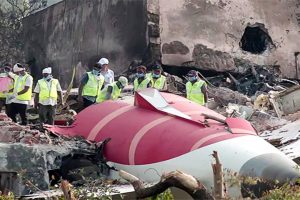Mike Andrews, lead US attorney representing families affected by the Air India AI-171 crash, has filed a Freedom of Information Act (FOIA) request to access the flight data recorder (FDR) of the ill-fated aircraft. Andrews claims new evidence points to a water leak-induced short circuit as the likely cause, rather than pilot error.
According to Andrews, the aircraft’s potable water system may have leaked into the electronics equipment (EE) bays, causing a short circuit that could have automatically shut down the fuel control switches, leading to catastrophic loss of propulsion.
He cited the Federal Aviation Administration’s (FAA) airworthiness directive (AD) for Boeing 787 models, including the 787-8 Dreamliner involved in the June 12 crash. The directive warns that improperly installed waterline couplings can allow moisture to enter critical avionics and flight control systems, potentially resulting in electrical shorts and loss of system functions essential for safe flight.
The FAA’s AD, issued on May 14, mandates inspections of seat tracks above EE bays to ensure sealants, moisture barriers, and tape dams are intact, designed to prevent water intrusion.
The Air India AI-171 flight crashed shortly after takeoff from Ahmedabad’s Sardar Vallabhbhai Patel International Airport, killing 260 people—229 passengers, 12 crew members, and 19 on the ground. India’s Aircraft Accident Investigation Bureau (AAIB) reported that both engines unexpectedly shut down within 90 seconds of takeoff, triggering a rapid descent and one of the deadliest aviation disasters in recent Indian history.
Andrews’ FOIA request aims to clarify whether the suspected water leak and resulting short circuit were responsible for the tragedy, potentially reshaping the understanding of its cause.





